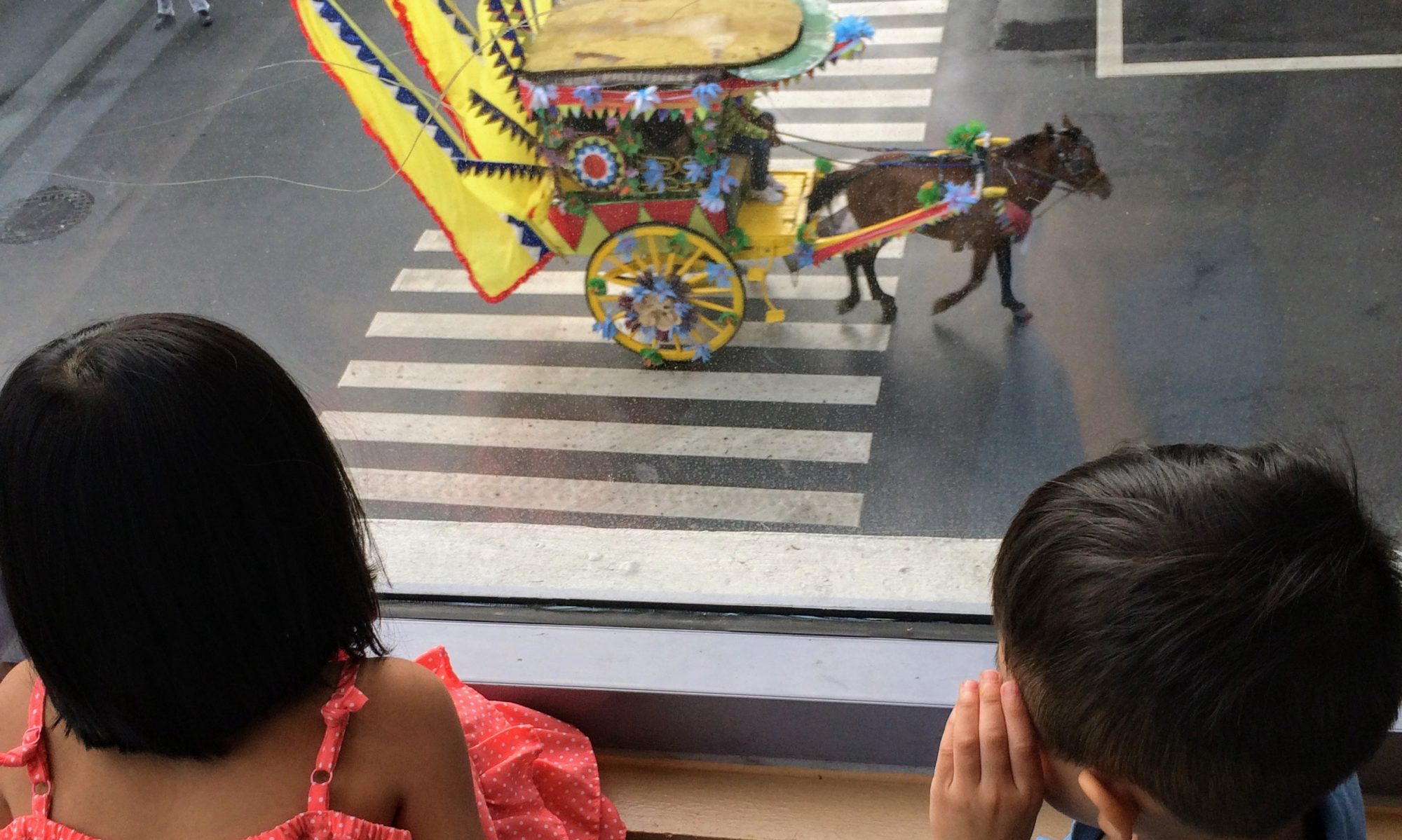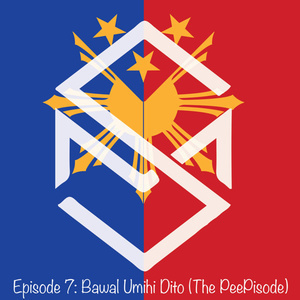Welcome to the Sherwin M Podcast, Episode 7! I’m Sherwin. Still pondering that tagline: “A podcast about the adventures of being Filipino American, a father, a developer, a retired sneaker head, and beer.” How does that sound? Still working on it!
Today’s episode is titled “Bawal Umihi Dito: The P Episode.” Yep, you read that right. I debated doing this topic, worried it might sound gross or offensive, but I have three stories related to this theme that I just had to share. Hopefully, you find them entertaining rather than disgusting! Let’s dive in.
Updates: Audio Glitches, Visitors, and Impulse Buys
A few things before the main topic:
- Ep 6 Audio: If you listened closely to Episode 6 (especially with headphones), you might have heard some background traffic noise. I recorded it in the afternoon, and my mic picked up more than usual. I tried my best to edit it out! Recording this one earlier (8 AM) hopefully helps.
- Aussie Relatives Visit: Abby’s relatives from Australia visited! It was great seeing them. Watching my two boys play calmly with their young daughter made me joke to Abby, “I think we need a girl!” They seem to have a calming influence.
- Sneaker Relapse: While shopping with our visitors, I accidentally ended up in a shoe store and impulse-bought a pair of Metallic Foamposite Pros. I told myself I was retired from sneaker collecting! They didn’t have my exact size (9.5) in the Royals I also wanted, which maybe saved me $225, but I still walked out with the Metallics ($250). Abby gave me that look. The addiction is real!
- That Kid Quote Moment: Learning from kids continues. My oldest son was taking a nap with me and had his hands down his pants. When I asked why, he matter-of-factly said, “My hands are cold and it’s warm down there.” I was speechless! You can’t prepare for moments like that. Being a dad is hilarious sometimes.
Episode Focus: Bawal Umihi Dito (The P Episode!)
Okay, onto the main topic: Bawal Umihi Dito.
- Tagalog Breakdown:
- Bawal: Not allowed / Forbidden
- Umihi: To pee / Urinate
- Dito: Here
- Meaning: “Peeing here is not allowed” or simply “No Peeing Here.”
Understanding the “No Peeing Here” Signs
These signs used to be very common on walls throughout cities in the Philippines, especially Manila, particularly back in the 90s. Why? Because public urination (mostly by men and boys) was a significant problem.
You might think, “Isn’t it obvious you shouldn’t pee on a public wall?” But factors like lack of accessible public restrooms, poverty, and perhaps different cultural norms contributed to the issue. It seems less common now, and I think they’ve started installing more public urinal stalls in some areas.
Remembering Comedy Legend Dolphie
This topic reminds me of a joke from the legendary Filipino comedian, Dolphy (who I was lucky enough to meet briefly before he passed away – an amazing moment!). In one movie, his character visits America and, needing to pee, goes against a wall like he might back home. When confronted by police (“Sir, that’s against the law!”), his punchline was, “No, it’s against the wall!” Corny, but classic.
Story 1: The National Anthem Incident (First Grade)
My first “Bawal Umihi Dito”-related story takes place in first grade at San Beda school in the Philippines. During the morning flag ceremony (singing the national anthem, Lupang Hinirang – not Bayang Magiliw as I mistakenly thought for years!), I desperately needed to pee. The teacher insisted I wait respectfully. When I pleaded, she might have jokingly said, “If you gotta go, go there!” Being a literal first grader… I did. Right in my khaki shorts. My Tita Uning had to bring me a change of clothes!
(Philippine National Anthem Info: Composed by Julian Felipe (1898), lyrics from Jose Palma’s Spanish poem “Filipinas”, translated to Tagalog 1940s/50s. Source: Wikipedia)
Story 2: The “Jingling” Misunderstanding (Second Grade)
Fast forward to second grade in Chicago at St. Jerome’s, brand new to America. I asked the teacher (“Mom,” as we sometimes called female teachers respectfully) to use the restroom (“comfort room” is the common PH term, but I switched to “bathroom”). I had to go with a partner, per school rules. In the restroom, I encountered urinals for the first time and opted for a stall. The other kid climbed the stall wall to peek while I was peeing! I ran back to class, exclaiming, “Mom, mom! So-and-so was peeking while I was jingling!” “Jingling” is common Filipino slang for peeing. The teacher had no idea what I meant until I clarified with “urinating.” (Side note: Filipino education felt advanced; I actually tested into 4th grade but stayed in 2nd because the older kids looked huge!).
Story 3: A Late Night, An Uncle, and the Barangay Patrol (College Years)
My third story happened in my late teens/early college years during a trip back to the Philippines. I was bar hopping with my uncle, Tito Eric (just a few years older than me). After leaving the last bar around midnight, having had quite a bit to drink, I really had to go pee. No bars would let us back in without paying cover again. While waiting for a jeepney, I couldn’t hold it. My uncle said, “Just go right there” against a wall, figuring it was late and quiet. Famous last words. Three barangay (neighborhood watch/officials with some authority) officials rolled up while I was mid-stream. They took us in their vehicle. My uncle was stressed, worried about telling my dad. I was… well, drunk and relaxed. My uncle smoothly offered the officials the 200 pesos (~$40?) I had left, phrasing it not as a bribe, but as “coffee money” (pampakape) since they were working late. He mentioned I was visiting from California and had a flight to catch. It worked! They dropped us off on a random corner, warning us not to do it again.
Why This Topic? (Cultural Context)
So, three pee stories! Why share them? Partly because they’re funny memories, but also because the “Bawal Umihi Dito” sign reflects a real aspect of navigating public spaces and differing norms in the Philippines, tied to infrastructure, poverty, and cultural habits.
Final Thoughts & Connecting
Hopefully, this episode was more entertaining than gross! Thanks for sticking with me if you’re still listening.

